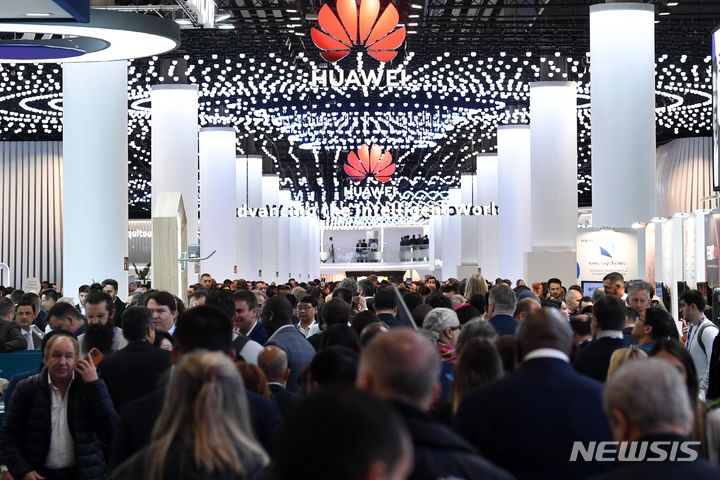Physical Address
304 North Cardinal St.
Dorchester Center, MA 02124
Physical Address
304 North Cardinal St.
Dorchester Center, MA 02124

The cause of Huawei’s rise and its impact on the smartphone market can be attributed to several key factors. These factors have reshaped the competitive landscape and disrupted the dominance of established players like Samsung and Apple.
Huawei’s rapid growth and expansion in the Chinese market have resulted in a significant shift in market share. With its patriotic appeal and competitive pricing, Huawei has emerged as a leading smartphone brand in China, surpassing Apple. This change in market share has forced Apple to reassess its strategies and make efforts to regain its position.
Huawei’s rise has sparked intense competition and innovation in the smartphone industry. Particularly, Samsung faces direct competition from Huawei’s foldable phones, which pose a significant threat to Samsung’s long-standing dominance in this segment. In response, Samsung has been compelled to accelerate its own foldable phone development and release new models to maintain its market leadership.
Huawei’s success and its strong presence in the Chinese market have influenced consumer preferences. The combination of patriotic sentiment and Huawei’s high-quality, competitively priced smartphones has resonated with Chinese consumers. This shift in consumer preferences has resulted in decreased demand for Apple products and increased preference for Huawei devices. As a result, Apple and other global brands have had to adapt to changing consumer sentiments.
Huawei’s rise has also driven technological advancements in the smartphone industry. The development of Huawei’s Kirin series chips, particularly the Kirin 9000 and Kirin 9010, showcases Huawei’s commitment to innovation. This has put pressure on other smartphone manufacturers to enhance their own technological capabilities and offer more advanced features to compete with Huawei.
While Huawei’s rise has primarily been concentrated in the Chinese market, its influence extends beyond China. Huawei’s success in its home market has strengthened its global reputation and enhanced its position in international markets. This has prompted other smartphone manufacturers to take note of Huawei’s expanding influence and adjust their strategies to respond to this growing competition.
Huawei’s rise has implications for Samsung in two key ways. While Samsung’s market share in China has not experienced a significant decline, the threat posed by Huawei’s foldable phones cannot be ignored. Samsung’s long-standing dominance in the foldable phone market is being challenged, and the company must respond with innovative products to maintain its position.
On the other hand, Apple is directly affected by Huawei’s success in the Chinese market. Huawei’s emergence as a leading smartphone brand in China has had a direct impact on Apple’s market share. Apple has had to reassess its strategies and find ways to regain market share in the face of changing consumer preferences and Huawei’s patriotic appeal. Apple’s ability to compete with Huawei’s patriotic appeal and competitiveness will play a crucial role in its future success in the Chinese market.
Overall, the rise of Huawei and its impact on the smartphone market can be attributed to its disruptive market share, intensified competition and innovation, shifting consumer preferences, technological advancements, global market influence, and implications for established players like Samsung and Apple. These factors have reshaped the smartphone industry and highlight the need for continuous adaptation and innovation in order to remain competitive in this rapidly evolving market.
The rise of Huawei in the smartphone market has had significant effects on the industry, reshaping competition, consumer preferences, and technological advancements. These effects have been driven by Huawei’s disruptive market share, innovative products, and growing global influence.
The rise of Huawei has disrupted the market share of established players like Samsung and Apple. Huawei’s success in the Chinese market has challenged the dominance of these companies, leading to increased competition. As a result, Samsung and Apple have been compelled to innovate and enhance their product offerings to maintain their market positions.
Huawei’s rise has also influenced consumer preferences in the smartphone market. The combination of patriotic sentiment and competitive pricing has resonated with Chinese consumers, leading to a shift in demand towards Huawei devices. This shift has forced other smartphone manufacturers to adapt their strategies to cater to changing consumer preferences.
Huawei’s rise has driven technological advancements and innovation in the smartphone industry. The company’s focus on research and development, particularly in areas such as chip technology and camera capabilities, has pushed the boundaries of what is possible in smartphone design. This has spurred other manufacturers to invest in research and development to keep up with Huawei’s advancements.
Huawei’s success in the Chinese market has also translated into a growing global influence. The company’s expansion into international markets has challenged the dominance of Samsung and Apple in various regions. Huawei’s strong brand presence and competitive pricing have allowed it to gain market share in countries beyond China, further intensifying competition in the global smartphone market.
The rise of Huawei has had specific implications for Samsung and Apple. Samsung, as a direct competitor, has faced increased pressure to innovate and differentiate its products to maintain its market position. Apple, on the other hand, has experienced a decline in market share in the Chinese market due to Huawei’s rise. This has prompted Apple to reassess its strategies and find ways to regain market share.
In conclusion, the rise of Huawei in the smartphone market has had a profound impact on the industry, disrupting market share, influencing consumer preferences, driving technological advancements, and challenging established players. The effects of Huawei’s rise have reshaped the competitive landscape and pushed other manufacturers to innovate and adapt to changing market dynamics.
If you’re wondering where the article came from!
#